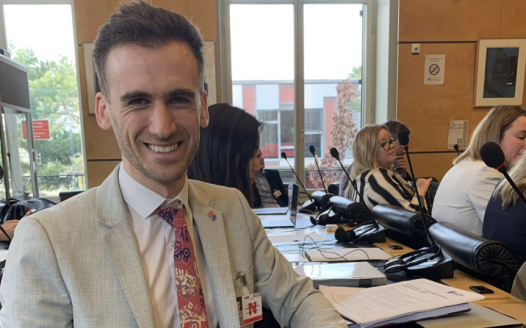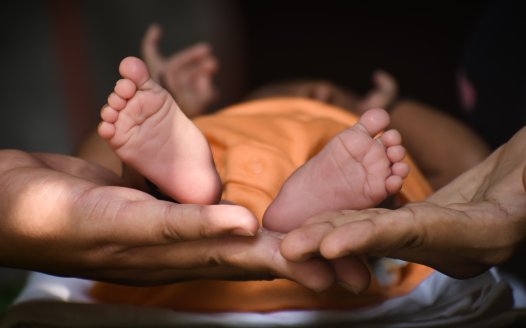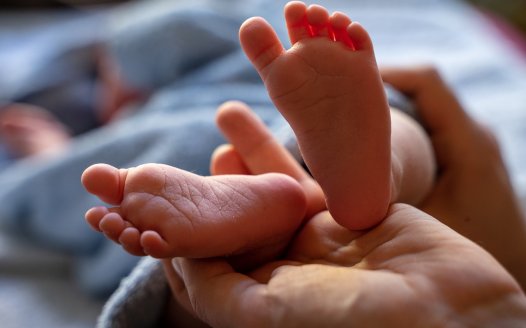Doctors’ body: consider parents’ religion on infant genital cutting
Posted: Wed, 27th Feb 2019
The National Secular Society has criticised the professional body which represents doctors after it said "health interests" should not be the sole factor in deciding whether to cut boys' genitals.
In newly-published guidance for doctors the British Medical Association (BMA) has said decisions on whether to circumcise boys should partly be influenced by their "social and cultural interests".
It adds that "an overall best interests assessment" should include consideration of "matters including the child's social and cultural circumstances".
"Where a child is living in a culture in which circumcision is perceived to be required for all males, the increased acceptance into a family or society that circumcision can confer is considered to be a strong social or cultural benefit. Exclusion may cause harm by, for example, complicating the individual's search for identity and sense of belonging."
The guidance says "parental preference alone does not constitute sufficient grounds for performing NTMC (non-therapeutic male circumcision)". But it also lists a series of factors to be taken into consideration on the subject.
They include "the views of parents and family", "the implications for the family of performing, and not performing, the procedure" and "relevant information about the child or young person's religious or cultural background".
It adds that "some religions require circumcision to be undertaken within a certain time limit", meaning a decision not to cut their genitals immediately may be "harmful".
The BMA says it has "never taken a position in the debate about the acceptability or otherwise of NTMC".
"Instead, as with other procedures involving children who lack the capacity to consent, we have made clear that those wishing to authorise the procedure for their children need to demonstrate that it is in the child's best interests."
It also cites several positions outlined by the General Medical Council (GMC), which registers medical practitioners. One cited GMC document says doctors should "consider the religious and cultural beliefs and values of the child or young person and their parents" when deciding whether to cut children's genitals.
The BMA guidance says doctors are not obliged to carry out requests to circumcise children if they do not think it is in their best interests. But it adds that doctors who object to cutting children's genitals must follow GMC guidance on conscientious objection.
It also says doctors who do not believe circumcision is in a child's best interests should tell parents that they are entitled to seek a "second opinion".
The BMA also refers to GMC guidance on personal beliefs. This says doctors carrying out ritual circumcisions should "explain" to patients or their parents that they may invite a "religious adviser" to attend "to give advice on how it should be performed to meet the requirements of their faith".
The BMA acknowledges that harm can be done when someone does not have "the opportunity to choose not to be circumcised or choose not to follow the traditions of his parents". It says this, along with the potential harm caused to the child's relationship with his parents as a result, should be taken into account.
It says doctors should not assume that parents will support circumcision or seek it because a child is "born into a practising community". It adds that "options which maximise the child or young person's future opportunities and choices" should be prioritised over those which do not.
The BMA's positions on medical ethics often have a significant influence on government policy.
NSS chief executive Stephen Evans said: "We welcome the BMA's acknowledgement that parental preference alone does not constitute sufficient grounds for performing ritual circumcision. However, we reject the tacit assumption within the guidance that because a child is born to parents with strong religious beliefs, it may be in the child's best interests to be subjected to medically unnecessary surgery.
"There is ample evidence of harm from ritual circumcision. Child safeguarding must be the priority rather than appeasing the desire of adults within a community to express their belief through the forced cutting of their child's genitals. Religious freedom isn't a licence to violate children's rights.
"The BMA's vague advice also fails doctors, who would benefit from clear directions which put their duty of professional care to their patients first.
"No child should be subjected to unnecessary medical surgery. We therefore urge policymakers to promote child safeguarding in the face of harmful religious or cultural practices."
The guidance acknowledges that there is a growing medical consensus against non-therapeutic genital cutting.
In 2010 the Royal Dutch Medical Society (KNMG) advised doctors to discourage parents from having their sons circumcised, urging "a strong policy of deterrence". It said any medical advantages of circumcision were significantly outnumbered by the risks and other disadvantages, such as the loss of up to 30% of erogenous tissue.
In 2013 an international group of physicians criticised the American Academy of Paediatrics for promoting infant male circumcision. The Council of Europe adopted a non-binding resolution advising member states not to allow the ritual circumcision of children unconditionally, at least for very young children. The Scandinavian children's ombudsmen issued a joint statement saying children should be allowed to choose for themselves.
In 2016 the Danish Medical Association said circumcision should only be performed with "informed consent". And in 2017 a Belgian federal government committee ruled against the cutting of infant boys' genitals for reasons other than medical necessity.
Children's right to physical integrity and protection from physical injury is protected by the International Treaty on the Rights of the Child.
In a submission to a GMC consultation on its guidance on decision making and consent last month the NSS said it should "explicitly address" the harm caused by ritual infant genital cutting.
The guidance comes as the government is expected to bring a bill to strengthen protections against female genital mutilation (FGM) before the House of Commons. A private members' bill on FGM was blocked from immediate passage by the Conservative MP Christopher Chope earlier this month.
In a debate on the topic shortly afterwards Conservative MP Andrew Bridgen asked minister Lucy Frazer to "update the house on the government's policy on male genital mutilation". Frazer's reply did not address the topic of cutting boys' genitals.
Bridgen's colleague Matthew Offord later remarked that there was "no moral equivalence" between cutting boys' and girls' genitals.
What the NSS stands for
The Secular Charter outlines 10 principles that guide us as we campaign for a secular democracy which safeguards all citizens' rights to freedom of and from religion.








